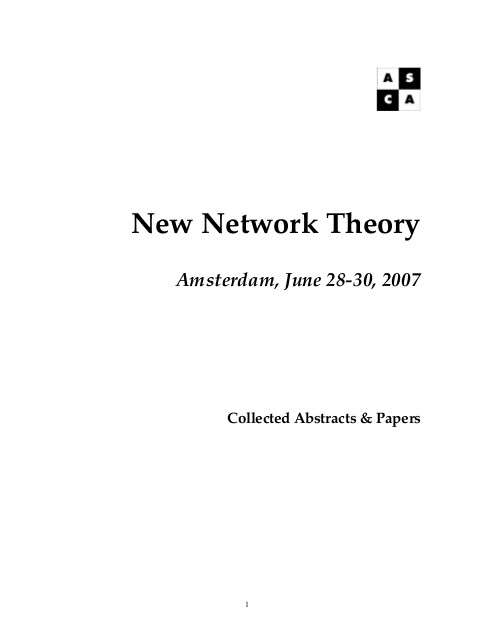Bruno Latour, Peter Weibel (eds.): Making Things Public: Atmospheres of Democracy (2005)
Filed under book, catalogue | Tags: · aesthetics, art, assemblage, democracy, philosophy, political economy, politics, science, societya, technology, things

“In this editorial and curatorial project, more than 100 writers, artists, and philosophers rethink what politics is about. In a time of political turmoil and anticlimax, this book redefines politics as operating in the realm of things. Politics is not just an arena, a profession, or a system, but a concern for things brought to the attention of the fluid and expansive constituency of the public. But how are things made public? What, we might ask, is a republic, a res publica, a public thing, if we do not know how to make things public? There are many other kinds of assemblies, which are not political in the usual sense, that gather a public around things—scientific laboratories, supermarkets, churches, and disputes involving natural resources like rivers, landscapes, and air. The authors of Making Things Public—and the ZKM show that the book accompanies—ask what would happen if politics revolved around disputed things. Instead of looking for democracy only in the official sphere of professional politics, they examine the new atmospheric conditions—technologies, interfaces, platforms, networks, and mediations that allow things to be made public. They show us that the old definition of politics is too narrow; there are many techniques of representation—in politics, science, and art—of which Parliaments and Congresses are only a part.”
The authors include Richard Rorty, Simon Schaffer, Peter Galison, Richard Powers, Lorraine Daston, Richard Aczel, and Donna Haraway; their writings are accompanied by excerpts from John Dewey, Shakespeare, Swift, La Fontaine, and Melville. More than 500 color images document the new idea of what Bruno Latour and Peter Weibel call an “object-oriented democracy.”
Publisher MIT Press, 2005
ISBN 0262122790, 9780262122795
1072 pages
Review: Anthony Iles (Mute).
PDF (82 MB, updated on 2020-7-13)
Comment (1)Anna Everett, John Thornton Caldwell (eds.): New Media: Theories and Practices of Digitextuality (2003)
Filed under book | Tags: · aesthetics, art, cinema, computer animation, cyberpunk, cyborg, digital culture, digital media, interface, internet, media theory, new media, posthuman, programming, television, virtual reality

The mushroom-like growth of new media technologies is radically challenging traditional media outlets. The proliferation of technologies like DVDs, MP3s and the Internet has freed the public from what we used to understand as “mass media.” In the face of such seismic shifts and ruptures, the theoretical and pedagogical foundations of film and TV studies are being shaken to their core. New Media demands a necessary rethinking of the field. Writing from a range of disciplines and perspectives, the scholars here outline new theses and conceptual frameworks capable of engaging the numerous facets of emergent digital technology.
Publisher Routledge, 2003
AFI Film Readers series
ISBN 041593995X, 9780415939959
274 pages
PDF (updated on 2012-7-31)
Comment (0)New Network Theory: Collected Abstracts and Papers (2007)
Filed under proceedings | Tags: · actor-network theory, aesthetics, assemblage, internet, locative media, network culture, networks, social movements, web, web 2.0

On 28 – 30 June 2007, the Institute of Network Cultures and Media Studies, University of Amsterdam and the Amsterdam School for Cultural Analysis, organized the international conference New Network Theory. The object of study has shifted from the virtual community and the space of flows to the smart mob. When the object of study changes, so may the distinctions that dominate, particularly the schism between place-based space and place-less space, both organized and given life by networks. New Network Theory explored contemporary network theory that suits and reflects the changes to the objects of study that come to define our understandings of network culture – a post-Castellsian network theory, if you will, that takes technical media seriously.
themes: network theory, the link, locative media, networks and subjectivities, networking and social life, art and info-aesthetics, actor-network theory and assemblage, networks and social movements, mobility and organisation, anomalous objects and processes, and the global and the local.
speakers: Katy Börner, Wendy Chun, Noshir Contractor, Florian Cramer, Rob Stuart, Jean-Paul Fourmentraux, Matthew Fuller, Valdis Krebs, Olia Lialina, Noortje Marres, Anna Munster, Warren Sack, Alan Liu, Ramesh Srini-vasan, Tiziana Terranova, Siva Vaidhyanathan, and many others.
PDF
Three additional papers (Verheij, Cramer, Goriunova)

